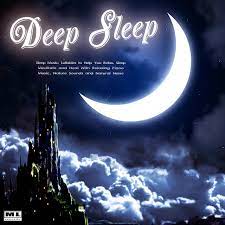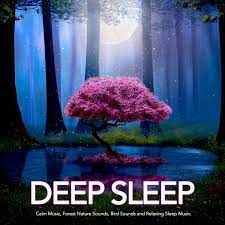Music to Relax and Sleep: The Soothing Power of Melodies
In today’s fast-paced world, finding relaxation and a good night’s sleep can sometimes feel like an elusive dream. However, there’s a simple yet powerful tool that can help you unwind and drift off into a peaceful slumber: music. With its ability to calm the mind, reduce stress, and create a serene atmosphere, the right choice of music can be a game-changer for your sleep routine.
When it comes to selecting music for relaxation and sleep, it’s important to choose melodies that have soothing qualities. Slow tempo, gentle rhythms, and soft instrumentation are key elements that can induce a state of tranquility. Additionally, instrumental tracks or those with minimal vocals tend to be more effective in promoting relaxation as they allow the mind to focus solely on the melody.
Classical music has long been recognized for its calming effects on the mind and body. Composers like Mozart, Bach, and Debussy have created timeless masterpieces that have stood the test of time in their ability to induce relaxation. Pieces such as Mozart’s “Piano Concerto No. 21” or Debussy’s “Clair de Lune” are renowned for their soothing qualities.
Nature sounds are another popular choice when it comes to creating a peaceful ambiance for sleep. The gentle rustling of leaves, the rhythmic sound of ocean waves crashing against the shore, or the melodic chirping of birds can transport you to a tranquil natural setting. There are numerous recordings available that combine these sounds with soft background music or simply present them in their pure form.
Ambient music is a genre specifically designed to create an atmosphere conducive to relaxation and sleep. Its ethereal tones and atmospheric textures provide a soothing backdrop that helps quiet racing thoughts and lull you into deep slumber. Artists like Brian Eno or Sigur Rós have crafted ambient masterpieces that effortlessly transport listeners to dreamlike states.
Guided meditation music is another powerful tool for relaxation and sleep. These tracks often incorporate calming melodies along with spoken guidance that helps you focus your mind, release tension, and enter a state of deep relaxation. They can be particularly helpful for those who struggle with racing thoughts or find it difficult to quiet their minds before sleep.
Incorporating music into your bedtime routine is a simple yet effective way to enhance relaxation and improve the quality of your sleep. Create a peaceful environment by dimming the lights, eliminating distractions, and playing the chosen melodies at a comfortable volume. Consider using wireless headphones or a dedicated sleep sound machine to ensure an uninterrupted experience.
Remember that everyone’s preferences are unique, so it’s important to experiment with different genres and tracks to find what works best for you. What matters most is finding music that resonates with your personal taste and creates a sense of calmness within you.
So the next time you’re struggling to unwind or find yourself tossing and turning in bed, turn to the power of music. Let its enchanting melodies transport you to a place of serenity, allowing your body and mind to relax deeply, paving the way for rejuvenating sleep.
5 Frequently Asked Questions About Music for Relaxation and Sleep
- What type of music is best to relax and sleep to?
- What are some relaxing music playlists?
- How can I use music to help me sleep better?
- What are the benefits of listening to music while sleeping?
- How loud should I have my music when trying to sleep?
What type of music is best to relax and sleep to?
When it comes to choosing music to relax and sleep to, there isn’t a one-size-fits-all answer as everyone has unique preferences and responses to different genres. However, certain types of music have been found to be particularly effective in promoting relaxation and sleep. Here are some popular choices:
- Classical Music: Known for its soothing qualities, classical compositions by composers like Mozart, Bach, and Debussy can help calm the mind and induce a state of relaxation.
- Ambient Music: This genre is specifically designed to create a peaceful atmosphere. With its ethereal tones and atmospheric textures, ambient music can help quiet racing thoughts and create a tranquil environment.
- Nature Sounds: The gentle sounds of nature, such as ocean waves, raindrops, or bird songs, can transport you to a serene natural setting and promote relaxation.
- Instrumental Music: Tracks without lyrics or minimal vocals allow the mind to focus solely on the melody, making instrumental music an excellent choice for relaxation.
- Guided Meditation Music: These tracks combine calming melodies with spoken guidance that helps you focus your mind, release tension, and enter a state of deep relaxation.
Ultimately, the best type of music for relaxation and sleep is one that resonates with your personal taste and creates a sense of calmness within you. Experiment with different genres and tracks to find what works best for you. It’s also important to consider factors such as volume level (keeping it low) and using comfortable headphones or speakers for an uninterrupted experience.
What are some relaxing music playlists?
- “Chillout Lounge” – A collection of laid-back electronic and downtempo tracks perfect for unwinding and creating a serene atmosphere.
- “Acoustic Relaxation” – This playlist features soothing acoustic melodies, gentle vocals, and heartfelt lyrics that create a cozy and calming ambiance.
- “Nature Sounds for Sleep” – Immerse yourself in the calming sounds of nature with this playlist, which includes recordings of rainstorms, ocean waves, forest sounds, and more.
- “Classical Serenity” – Experience the tranquil beauty of classical music with this playlist featuring compositions by renowned composers like Mozart, Beethoven, Chopin, and Debussy.
- “Ambient Bliss” – Dive into the ethereal world of ambient music with this playlist that combines atmospheric textures, soothing tones, and minimalistic melodies to induce relaxation.
- “Meditation & Yoga” – Find inner peace and tranquility with this playlist specifically curated for meditation and yoga practice. It includes serene instrumental tracks and gentle vocals to guide your mindfulness journey.
- “Piano Reflections” – Lose yourself in the enchanting melodies of solo piano compositions by artists like Ludovico Einaudi, Yiruma, and Max Richter. This playlist is perfect for unwinding after a long day.
- “Spa Relaxation” – Recreate the soothing atmosphere of a spa in your own home with this playlist filled with serene instrumental tracks and soft melodies that promote relaxation and rejuvenation.
- “Deep Sleep Sounds” – Drift off into deep slumber with this playlist featuring calming white noise, binaural beats, and gentle ambient tracks designed to help you achieve a restful night’s sleep.
- “Instrumental Bliss” – Explore the world of instrumental music from various genres like jazz, classical guitar, saxophone solos, or even instrumental covers of popular songs that evoke a sense of tranquility and peace.
Remember, these playlists are just starting points, and you can always customize them to suit your personal preferences. Experiment with different tracks, genres, and artists to create the ultimate relaxing music experience that helps you unwind and find solace in the melodies.
How can I use music to help me sleep better?
Using music to help you sleep better can be a simple and effective addition to your bedtime routine. Here are some tips on how to incorporate music into your sleep routine:
- Create a Relaxing Environment: Set the stage for sleep by creating a calm and peaceful environment in your bedroom. Dim the lights, remove distractions, and ensure that your sleeping space is comfortable and inviting.
- Choose Soothing Music: Select music that promotes relaxation and tranquility. Look for slow tempo, gentle melodies, and soft instrumentation. Instrumental tracks or those with minimal vocals tend to work best as they allow the mind to focus solely on the melody.
- Experiment with Different Genres: Everyone has unique preferences when it comes to music, so explore different genres to find what resonates with you. Classical music, ambient sounds, nature recordings, or guided meditation tracks are all worth exploring.
- Establish a Bedtime Ritual: Incorporate music into your bedtime ritual as a signal that it’s time to unwind and prepare for sleep. Set aside a specific time each night to listen to calming music before bed.
- Use Wireless Headphones or Sleep Sound Machines: If you share a sleeping space or want to minimize external noise distractions, consider using wireless headphones or dedicated sleep sound machines that play soothing melodies without disturbing others.
- Create a Playlist: Curate a playlist of your favorite relaxing tunes specifically for sleep purposes. Having a dedicated playlist will make it easier for you to access soothing music whenever you need it.
- Practice Deep Breathing or Meditation: As you listen to the music, engage in deep breathing exercises or meditation techniques to further enhance relaxation and promote sleepiness.
- Set a Timer: If you prefer not to leave the music playing all night long, set a timer on your device or use an app that gradually fades out the volume after a certain period of time.
Remember that consistency is key when using music to aid sleep. Make it a regular part of your routine and allow your mind and body to associate the music with relaxation and falling asleep. With time, you’ll find that music becomes a powerful tool in helping you achieve a restful night’s sleep.
What are the benefits of listening to music while sleeping?
Listening to music while sleeping can offer several benefits that contribute to a better night’s rest and overall well-being. Here are some key advantages:
- Relaxation and Stress Reduction: Music has a profound impact on our emotions and can help us relax and unwind after a long day. Slow, calming melodies can lower heart rate, reduce blood pressure, and decrease levels of stress hormones like cortisol, promoting a state of relaxation conducive to sleep.
- Improved Sleep Quality: Music can help improve the quality of sleep by creating a soothing atmosphere that aids in falling asleep faster and staying asleep throughout the night. It can mask disruptive background noises, such as traffic or snoring, helping you maintain a more peaceful sleep environment.
- Enhanced Sleep Patterns: Listening to music with a slow tempo and gentle rhythm can synchronize brainwaves and encourage the production of delta waves associated with deep sleep stages. This synchronization promotes more restful sleep, allowing you to wake up feeling refreshed and rejuvenated.
- Reduction of Anxiety and Insomnia Symptoms: For individuals who struggle with anxiety or insomnia, music can be an effective tool for relaxation therapy. By diverting attention away from racing thoughts or worries, music helps calm the mind and induces a sense of tranquility that facilitates falling asleep more easily.
- Mood Enhancement: Music has the power to uplift our mood by triggering the release of endorphins – feel-good hormones in the brain. Listening to pleasant melodies before bed can create positive emotions, alleviate negative feelings, and contribute to an overall sense of well-being.
- Decreased Nighttime Awakenings: Certain types of music, such as ambient or nature sounds, can help minimize nighttime awakenings by providing a continuous soothing background that prevents sudden interruptions during sleep cycles.
- Increased Focus on Breathing: Soft melodies combined with deep breathing exercises create a calming synergy that promotes relaxation and mindfulness before sleep. This focus on breathing patterns helps quiet the mind and prepares the body for a restful night’s sleep.
It’s important to note that individual preferences for music vary, so it’s essential to choose melodies that personally resonate with you and create a sense of calmness. Experiment with different genres and tracks to find the ones that help you relax and improve your sleep quality.
How loud should I have my music when trying to sleep?
When using music to aid sleep, it’s important to keep the volume at a level that promotes relaxation and doesn’t disrupt your sleep. Here are some guidelines to consider:
- Keep it low: Set the volume of your music at a level that is noticeably softer than your usual daytime listening volume. The goal is to create a soothing background ambiance rather than having the music overpowering or distracting.
- Background noise: Think of the music as a gentle backdrop, similar to white noise or nature sounds. It should be soft enough that you can easily have conversations or hear other sounds in your environment without straining.
- Comfortable and calming: The volume should be low enough that you can easily relax and fall asleep while still being able to hear the music. If you find yourself struggling to hear the melody or if it becomes too prominent, lower the volume further.
- Personal preference: Everyone has different preferences when it comes to sleep environments and sound levels. Experiment with different volumes until you find what works best for you. Trust your own comfort level and adjust accordingly.
Remember, the purpose of using music for sleep is to create a peaceful atmosphere conducive to relaxation and restful sleep. If the volume is too loud, it may become stimulating rather than soothing, potentially interfering with your ability to fall asleep or stay asleep throughout the night.
It’s also worth considering using headphones or earbuds designed for sleep, as they can help isolate external noises and provide a more immersive experience without disturbing others nearby.
Ultimately, finding the right balance between volume and relaxation is a personal journey. Listen attentively to your body’s cues and adapt accordingly until you discover what works best for you in creating a calm and tranquil sleep environment.




